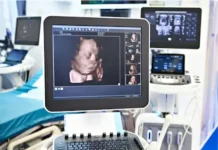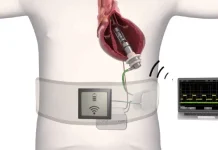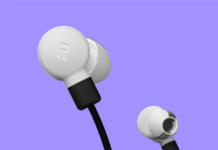Hangzhou RoboCT Technology Development Co., maker of rehabilitation robots in China, has scored $15.7 million in a Series A+ funding round led by Fortune Capital.
The investing round was also participated by Essence Securities, Poly Capital, and its existing investor, Blue Run Ventures China.
WHAT IT DOES
RoboCT develops smart rehabilitation devices and rehabilitation assistance tools for the disabled, the elderly, and medical rehabilitation centres. It claims to be the first company in China to obtain a clearance from the National Medical Products Administration for its lower-limb exoskeleton robots for central neuropathy.
Its UGO exoskeleton robot has been used in over 200 Chinese hospitals to help patients relearn gait, including those with spinal cord injury, stroke, lower limb muscle weakness, and other nervous systems diseases. Its device uses intention detection and multi-sensor information fusion technologies to analyse, assess, and respond to user intentions.
The company also creates exoskeleton tech for various applications, such as for entertainment and sports.
With its robot-as-a-service model, combined with the use of the digital rehabilitation cloud platform, RoboCT helps to greatly alleviate therapists’ work burden while enhancing the efficiency of rehabilitation training.
RELATED: restor3d raises US$23 million to expand 3D-printed surgical solutions
WHAT IT’S FOR
Based on a press statement, the company’s new funds will be used to strengthen its operational and commercialisation capabilities and global expansion.
CEO Wang Tian said that in the future, they plan to increase their investments in product, talent, technology and supply chain, as well as enrich their product matrix and work on building an open C-end consumer operation platform.
MARKET SNAPSHOT
The global market for rehabilitation robots is seen to go above $750 million in value this year. By 2026, it is projected to grow to $1.8 billion, growing at a 21.7% CAGR. China, the world’s second-biggest market for rehab robots with 39% of the global market’s share, is expected to be worth nearly $270 million over the next four years, rising by 23% each year.
Another player in this space, GripAble, a London-based maker of a digital neurological and musculoskeletal rehabilitation platform, has also raised $11 million in a recent Series A financing round. The company offers a handheld device that can be squeezed to assess a user’s grip strength. It gamifies arm and hand training by connecting to a smartphone app.






